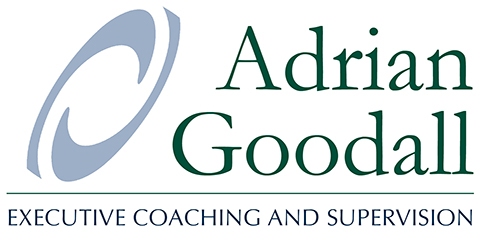Two simple questions that can make a difference
Words and phrases have different meanings and associations for different people. This can have a big impact on how effectively you communicate – and understand others.
For example, take just one word: Sharp…
…as a knife. The pleasure of a freshly-sharpened steel blade as it cuts into a bright red, vine-ripened tomato, silently slicing the cool, firm skin as you prepare a summer salad, with spring onions, herbs and olive oil.
Or perhaps a sharp glinting knife in a terrifying night-time fight, or a metaphorical knife cutting costs in a struggling business, or (keeping it topical) a Government department budget.

sharp as a knife – but a real one, or a metaphorical one in the hands of the Exchequor?
Sharp… as an axe, a weapon, or a garden tool for chopping firewood. Or the axe which is swung in a strategic reorganisation. Sharp… as a pin. Painful. Useful for removing splinters, or pinning things down to provide structure, or on a notice board, offering flexibility.

sharp as an axe for winter fuel, or business strategy?
Sharp… as a lemon – eye-watering, and also a tangy freshness. Sharp… as a fish-wife’s tongue, cruel and hurtful, and making things happen. Or as Oscar Wilde’s wit – evanescent words with such influence and power. Or sharp intellect, to spur meaningful debate, or give sharp focus in decision making and strategy.

which metaphor might spring to mind for your audience when you use the word ‘sharp’?
That’s just a few different meanings and metaphors coming from one word. And we’ll all have our own interpretations, images and reactions to that wood-chopping axe, the lashing tongue or the witty riposte. As you can see, it’s pretty easy to have both positive and negative interpretations.
Having a better understanding of what other people mean when they use particular words and metaphors, and helping others to have a better understanding of what you mean, can make a huge difference at work and in life.
This is true whether you’re the leader of a business unit, or organisation, or a team working on a project – or a member of that team, or an individual in a relationship.
Just a couple of simple questions can help you work out what someone means or wants, if you’re prepared to listen. The secret is not to interfere with or immediately interpret how they think of something, but to explore it. For example, if your colleague says “I can’t do that, I’m really busy today”, rather than saying “Yeah I know what you mean, I’m just swamped!” and both of you spiralling into stress mode, you could ask “Oh OK, what kind of busy is that?”. “Well, I’ve got a bunch of emails to deal with and a big meeting this afternoon and I’ve got to prepare for that, and I’ve got to pick up some forms from the Post Office..” – already you have a lot more information about what ‘busy’ means for them – and perhaps how you might be able to help or be valuable to them today, or just wait until tomorrow.

if you’re prepared to listen, just 2 simple questions can give you a lot of information
If they seem OK to continue talking, you could ask “And is there anything else about that big meeting?” – “Well everyone involved in project X is going to be there and I’m supposed to make a presentation” – “Oh, what kind of presentation is that?” – and so on…
And you can use this process in reverse too, for example, preparing for a meeting or presentation where you’re keen to get your message across – use metaphors and develop them with these questions, to help your audience connect even more effectively with what you want them to understand.

help your friends, colleagues, clients to understand your message
The two questions above – what kind of? and is there anything else about? – are the first steps of Clean Language – a technique developed by the late New Zealand psychotherapist, David Grove, and now found in many different areas, including coaching – and even in general conversation if you want to open things up in a more interesting way (though be careful not to be too intrusive!). There’s also another whole, linked, area called Emergent Knowledge. Lots of fascinating and powerful stuff. For me, it’s a core element of my work. There are some links below, if you’d like to find out more.
Thanks for reading, and enjoy your work!
(and what kind of enjoy is that?)
Adrian
Links:
The Clean Collection – Penny Tomkins and James Lawley originally modelled David Grove’s techniques to create Symbolic Modelling.
Clean Coaching – Angela Dunbar works closely with Carol Wilson and provides teleclass-based learning which is where I have done most of my learning in Clean Language and Emergent Knowledge.
Clean Change Company – Wendy Sullivan’s Clean site.
The Powers of Six – Philip Harland and Matthew Hudson’s site focusing on Emergent Knowledge.
X-Ray Listening – Judy Rees’s Clean-focused site.
An article in this month’s Coaching at Work magazine (available if you’re a subscriber)


